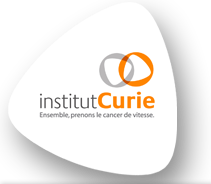Prediction of Breast Cancer Treatment\textendashInduced Fatigue by Machine Learning Using Genome-Wide Association Data
Résumé
Background We aimed at predicting fatigue after breast cancer treatment using machine learning on clinical covariates and germline genome-wide data. Methods We accessed germline genome-wide data of 2799 early-stage breast cancer patients from the Cancer Toxicity study (NCT01993498). The primary endpoint was defined as scoring zero at diagnosis and higher than quartile 3 at 1\,year after primary treatment completion on European Organization for Research and Treatment of Cancer quality-of-life questionnaires for Overall Fatigue and on the multidimensional questionnaire for Physical, Emotional, and Cognitive fatigue. First, we tested univariate associations of each endpoint with clinical variables and genome-wide variants. Then, using preselected clinical (false discovery rate < 0.05) and genomic (P\,<\,.001) variables, a multivariable preconditioned random-forest regression model was built and validated on a hold-out subset to predict fatigue. Gene set enrichment analysis identified key biological correlates (MetaCore). All statistical tests were 2-sided. Results Statistically significant clinical associations were found only with Emotional and Cognitive Fatigue, including receipt of chemotherapy, anxiety, and pain. Some single nucleotide polymorphisms had some degree of association (P\,<\,.001) with the different fatigue endpoints, although there were no genome-wide statistically significant (P\,<\,5.00 \texttimes 10-8) associations. Only for Cognitive Fatigue, the predictive ability of the genomic multivariable model was statistically significantly better than random (area under the curve = 0.59, P\,=\,.01) and marginally improved with clinical variables (area under the curve\,=\,0.60, P\,=\,.005). Single nucleotide polymorphisms found to be associated (P\,<\,.001) with Cognitive Fatigue belonged to genes linked to inflammation (false discovery rate adjusted P\,=\,.03), cognitive disorders (P\,=\,1.51 \texttimes 10-12), and synaptic transmission (P\,=\,6.28 \texttimes 10-8). Conclusions Genomic analyses in this large cohort of breast cancer survivors suggest a possible genetic role for severe Cognitive Fatigue that warrants further exploration.
Domaines
Sciences du Vivant [q-bio]
Origine : Publication financée par une institution
